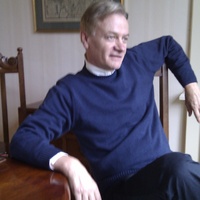The latest in our series of Challenge Panel introductions is Alan Partington, in his own words:

I work at Bologna University in Italy and live just north of the city in the town of Ferrara, which – I like to tell people – is exactly half way between Venice and Florence. I teach in the School of Political Science. The main topic of my undergraduate courses is the relationship between politicians and the media in English-speaking countries, as witnessed in the language used by each ‘side’. My postgraduate courses are in the area of International Relations, where we discuss topics such as globalisation, Euroscepticism (and Europhilia), economic development, aid and trade, and the increasingly important social and economic roles of women in the developing world.
I’ve long been keen on using corpus techniques to study the language of political and social-sciences discourses and so I’m very pleased to be a member of the CASS Challenge Panel. Over the past few years, I’ve been involved in a couple of large-scale political-sociolinguistics projects, one into the reporting of the conflict in Iraq (funded by the Italian Ministry for Universities) and one into the perceptions of European identity (funded by the EU). I’ve also looked at how antisemitism is discussed and evaluated in the UK broadsheet press and at how the Arab Uprisings were reported in the UK and US media. I am currently thinking about ways in which corpora might be used to study issues of social class.
I am also interested in the methodologies employed in using corpora in the social sciences and a team of scholars in Italy (‘SiBol’ from Siena and Bologna, the two universities involved) has been active in experimented techniques for corpus-assisted discourse studies which involves using corpora to investigate non-obvious meaning, that is, meaning which might not be readily available to naked-eye perusal. We have also looked at ways of tracking discourses around social issues over recent time, which we have named modern diachronic corpus-assisted discourse studies (or MD-CADS). The SiBol team has lately been investigating ways in which corpus techniques can be used to study areas often thought to be ‘tough nuts’ for corpus linguistics research, such as metaphor, irony, wordplay, politeness (including strategic laughter-talk), cohesion, investigating similarities between datasets (rather than the more common focus on differences) and searching, measuring and tracking what might be absent from a particular dataset (for example, which governments are sometimes called a ‘regime’ by the White House and which are never labelled as such?).
But a final word of caution. We need to be suspicious of approaches, however well-intentioned, which simply mine corpora to find evidence to support a preconceived argument. One of the added values of using corpora in social-sciences research is that this can help the data to speak for itself, which not only provides a measure of objectivity and replicability but also forces us to refine our hypotheses and frequently throws up suggestions for fresh avenues of research. As Tony McEnery pointed out in his recent TED talk, ‘we don’t throw away inconvenient data because it disagrees with our hypotheses. In fact we’re unusually interested in such data: we want to be challenged by it’. This takes a great deal of intellectual honesty, which has not always been in evidence, but it should be adopted as a slogan throughout the social sciences.
Did you miss our previous introductions? Click through to brush up on the exciting works of Mark Davies and Stefan Th. Gries.
